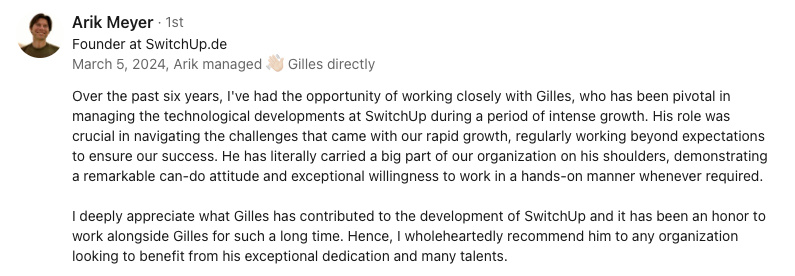Abstract:
Quantum computing stands at the brink of revolutionizing how we process information by leveraging principles of quantum mechanics. This technology, still in its nascent stages, promises unparalleled computational power, capable of solving complex problems far beyond the reach of today's most advanced supercomputers. For Chief Technology Officers and Directors of Technology, the implications are profound, spanning cybersecurity, drug discovery, climate modeling, and financial modeling, among other fields. Understanding quantum computing's potential allows leaders to prepare for a future where it plays a critical role in problem-solving and innovation. As this technology continues to develop, it will not only challenge our current computing paradigms but also offer new avenues for technological advancement and efficiency. For technology executives, staying informed about quantum computing's progress and integrating its potentialities into strategic planning is crucial for maintaining a competitive edge in the technological vanguard.
Quantum Computing UnveiledAs a Chief Technology Officer, I find myself standing at the threshold of what could very well be the next revolution in computing. Quantum computing, a concept that marries the peculiarities of quantum mechanics with computational theory, is poised to redefine the boundaries of processing power and problem-solving capabilities. This emerging technology, though still in its infancy, is heralded for its potential to perform calculations at speeds unfathomable to even the most sophisticated supercomputers of our era. The implications of such a leap in computational ability are vast, touching upon sectors as diverse as cybersecurity, pharmaceuticals, environmental science, and finance. For technology executives like myself, understanding the broad strokes and fine details of quantum computing is not merely an academic exercise; it is essential preparation for a future where quantum computing's influence permeates across industries.
The promise of quantum computing is not just in its ability to speed up calculations but in its fundamentally different approach to processing information. Traditional computers operate using bits that represent either a 0 or a 1, but quantum computers use quantum bits, or qubits, which can represent a 0, 1, or both simultaneously thanks to a principle known as superposition. This, combined with another quantum phenomenon called entanglement, allows quantum computers to process complex datasets much more efficiently than their classical counterparts. The potential to solve problems deemed intractable for current technology is not just exciting; it's a game-changer. For instance, in drug discovery, quantum computing could analyze vast combinations of molecular interactions at an unprecedented speed, potentially accelerating the development of new medicines.
However, it's not all smooth sailing. The path to integrating quantum computing into practical, everyday applications is fraught with technical challenges. The fragile nature of qubits requires them to be maintained at temperatures close to absolute zero to function correctly, making the hardware incredibly complex and sensitive. Furthermore, error rates are currently high, and creating algorithms that can harness the power of quantum computing is an ongoing area of research. Yet, the strides being made in this field are impressive. As a CTO, my role involves not just keeping a keen eye on these developments but also thinking critically about how to integrate future quantum capabilities into our strategic planning. It's a bit like trying to build a ship while sailing it—exciting, unpredictable, and requiring a good dose of innovative thinking.
For technology leaders, staying abreast of the progress in quantum computing is not just about maintaining a competitive edge; it's about shaping the future. The integration of quantum computing into our strategic planning does not mean we throw out our current IT roadmap. Instead, it requires us to be agile, to think about how quantum computing could enhance or transform our existing technologies and business models. It's about envisioning a future where quantum computing solves previously insurmountable problems and opens new avenues for innovation and efficiency. My advice to fellow CTOs and technology directors is to approach quantum computing with a healthy mix of skepticism and optimism. Embrace its potential, invest in understanding its progress, and prepare to harness its power to drive unprecedented growth and innovation in your sectors. Quantum computing may still be at a nascent stage, but its potential to reshape our technological landscape is undeniable. As leaders in technology, we have a front-row seat to this thrilling show, and I, for one, am excited to see where it takes us.
You might be interested by these articles:
- Exploring Quantum Computing's Future
- Unlocking Quantum Computing's Potential
- Quantum Computing: The Fintech Revolution Unfolds





